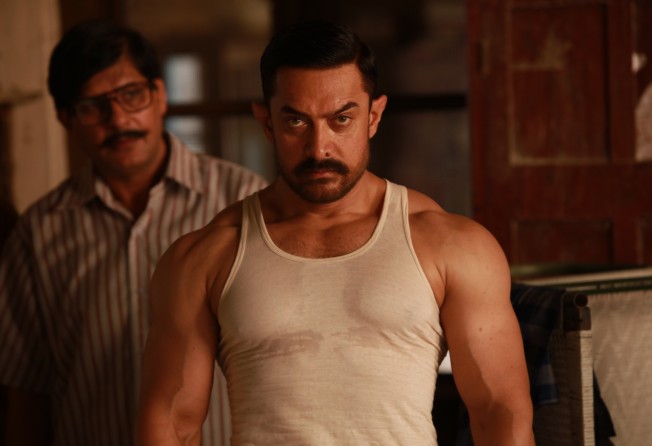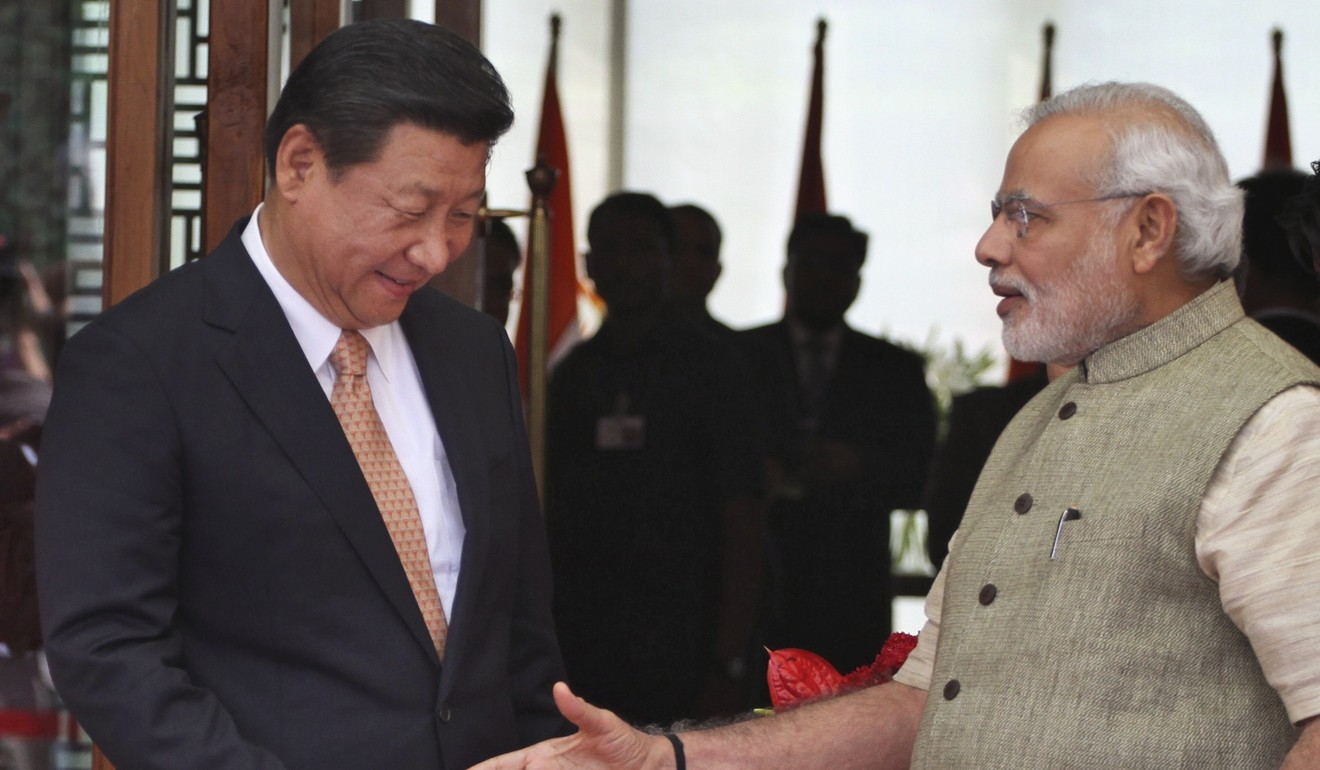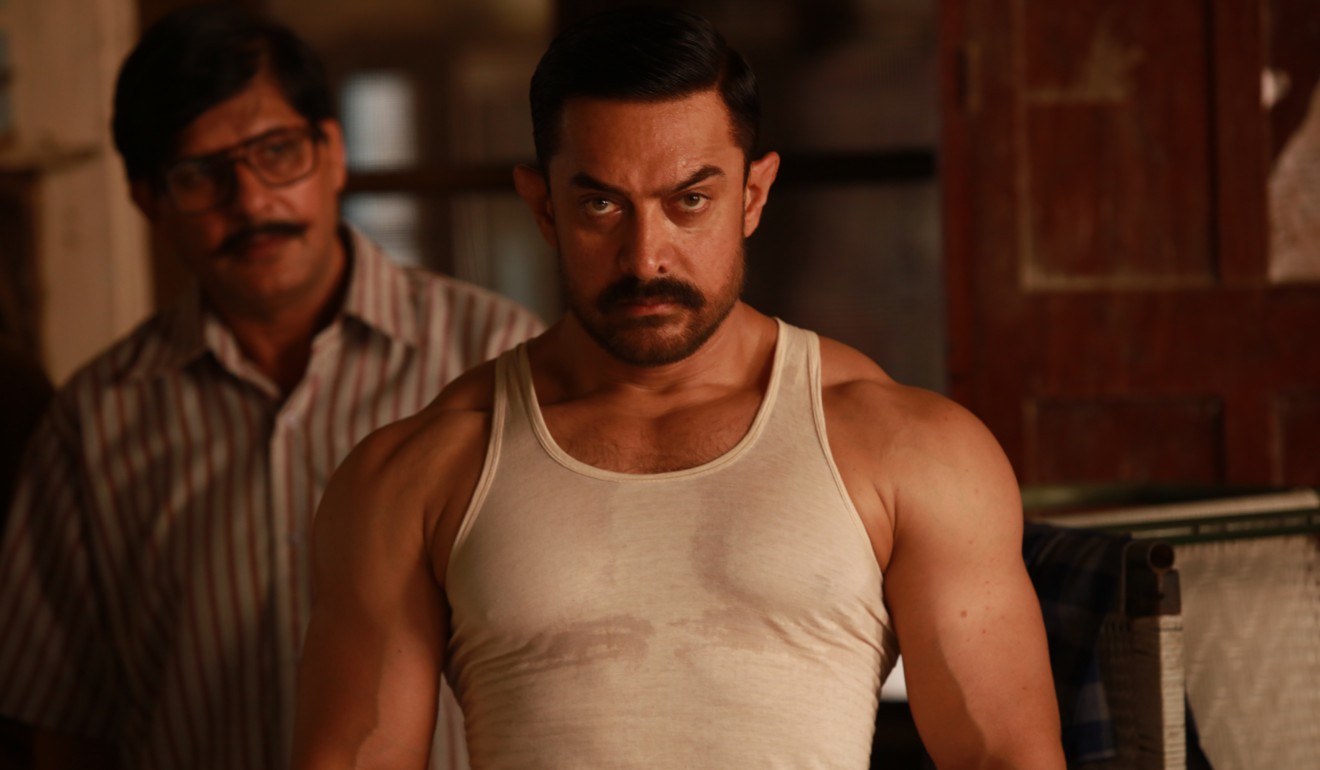
Can Bollywood be the bridge that binds India and China?
- Indian filmmakers are eyeing the huge potential to sell cinema tickets in China after the runaway success of 2017 movie Dangal starring Aamir Khan
- So far Bollywood has targeted Indian expat moviegoers but never local audiences. That is changing

Thousands of fans were at Beijing’s main international airport to greet Indian Bollywood superstar Shah Rukh Khan when he landed in China for the first time this April. The frenzy caught the 53-year-old actor by surprise, little did he expect such a large following in the country.
The warm welcome from Chinese fans, Khan said, underscores a growing trend of Indian filmmakers looking to the nation’s moviegoers as a potential new source of revenue. The star, nicknamed “King Khan” and an immensely influential figure in the Indian film industry, took part in the China-India Film Cooperation Dialogue as his latest project, Zero, brought down the curtains on the 9th Beijing International Film Festival, which notably lacked any Hollywood presence this year.
Throughout his trip the actor-cum-producer spoke of the potential for joint projects between the Indian and Chinese entertainment industries. Carefully sidestepping any political discussion on India-China relations, Khan signalled in interviews with China’s state-run media his view that cultural exchanges would make people-to-people connections stronger.
“People-to-people relationships, I think, 99 per cent gets sorted with cultural exchange, there’s no problem, or [through] sports exchange,” Khan told China Daily.

But he added that “you overplay the role of art and culture if you start putting it in the political arena, because it’s mutually exclusive”.
Khan’s sentiment echoes comments by Indian Prime Minister Narendra Modi at a landmark summit with Chinese President Xi Jinping in Wuhan last year at which Modi called for increased cultural cooperation.
After the summit, Indian Foreign Secretary Vijay Gokhale, a former ambassador to China, said Xi told Modi “that it would be a good idea to expand this, and more Indian films should come to China and more Chinese films should go to India”.
BOLLYWOOD’S BILATERAL BENEFITS
China is the world’s second-largest movie market after the United States. Its potential came under Bollywood’s radar after the unexpected runaway success of 2017 movie Dangal, which starred Aamir Khan in a story of how a wrestler trains his daughters to achieve global success against the odds. The sports drama minted more than US$190 million in China – double its domestic box-office takings – and became the highest-grossing non-Hollywood movie of all time in the country. Xi reportedly told Modi he had seen Dangal and enjoyed it.
Indian films with stories of romance or social struggles that steer clear of politics have attracted the biggest Chinese audiences so far.

India produces more movies than any other nation with over 1,000 feature-length films made annually – roughly double the output of Hollywood. But the number of cinema screens in the country has dwindled from more than 12,000 to 9,000 over the last five years.
China, which has more than five times the number of cinema screens in India, has never been seen as a conventional market for Hindi-language films chiefly due to its limited Indian diaspora. Of the five million Indians living overseas, only about 55,000 are in China. So far Bollywood has targeted Indian expat moviegoers but never local audiences. However, that is changing with the focus on China.
Consulting giant Deloitte in March last year published a report titled “Economic Contribution of the Film and Television Industry in India” which shed light on the expanding opportunities for Indian filmmakers.

Jehil Thakkar, a partner at Deloitte India, said recent successes such as Dangal, Secret Superstar and black comedy-crime thriller Andhadhun had motivated producers to keep the Chinese market in mind while making movies.
“It has suddenly become an aspirational market. Even if a film moderately performs in China compared to India, it’s a fairly big number because of the number of screens and ticket prices,” Thakkar said.
The average cinema ticket costs about US$1.50 in India as opposed to US$12 in China.
Still, the Chinese market packs its set of challenges such as the stipulation that only 34 foreign films can be screened in cinemas annually. This is a headache for Bollywood as it competes with Hollywood spectacles. Strict Chinese censorship can also sometimes be an issue for song-and-dance dramas.
Though it may be a stretch to imagine Bollywood acting as a form of “soft power” in India-China geopolitical affairs, some analysts say the cultural connections it builds can cushion bilateral relations.
“As Andhadhun and Thugs of Hindostan showed, the most important thing is that it is a good film, particularly since word of mouth is so important in China,” said Stanley Rosen, a Chinese film industry specialist at the University of Southern California’s US-China Institute.
But he added that cultural links always took a back seat to Beijing’s political priorities.
“Politics is always in command in China, so if the relationship turned sour again over border issues or other irritants, then Indian films, co-production agreements, etc, would suffer.”